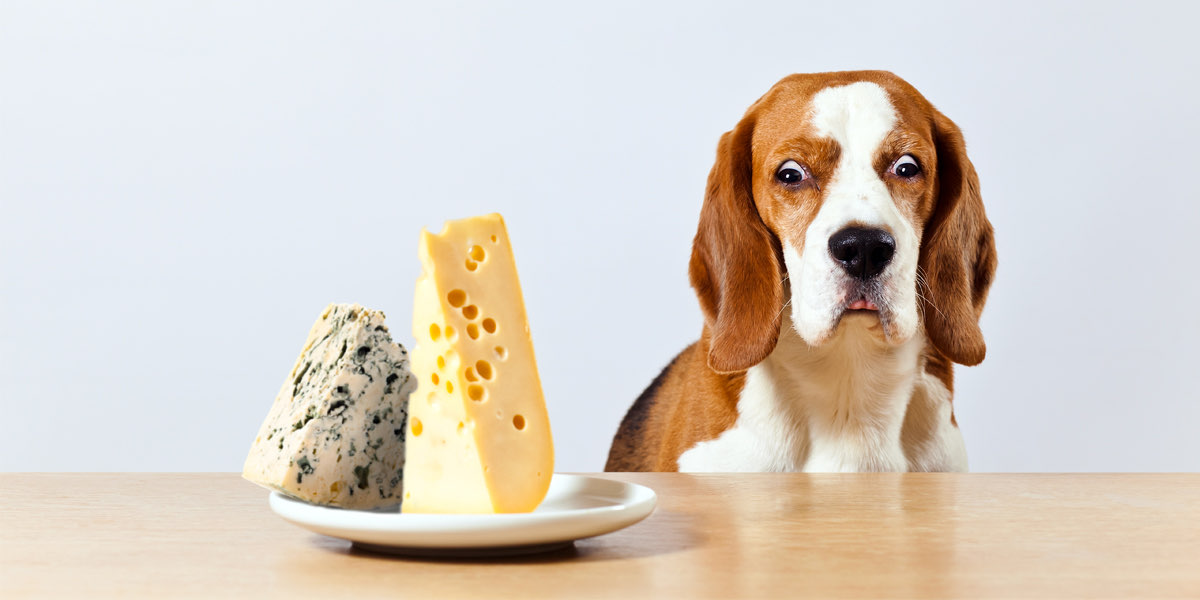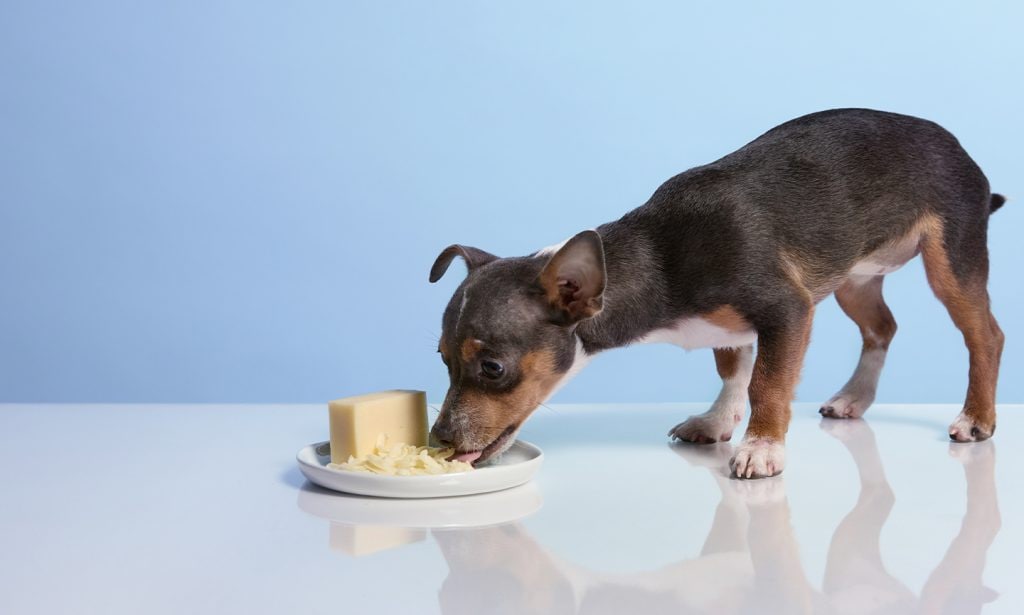Pitbulls have a reputation for being tough and muscular, but did you know that they also have unique dietary needs? Many people wonder whether pitbulls can eat cheese, as cheese is a common snack that many humans enjoy. But can pitbulls safely indulge in this dairy delight?
When it comes to pitbulls eating cheese, it’s important to consider their lactose tolerance. Like some humans, pitbulls may be lactose intolerant, which means they lack the enzyme necessary to break down lactose, the sugar found in milk and dairy products. Feeding a lactose-intolerant pitbull cheese could result in digestive upset and discomfort. However, there are some varieties of cheese that are low in lactose, like aged cheddar or Swiss, which could be given to pitbulls in moderation as an occasional treat. As with any new food introduction, it’s best to consult with a veterinarian to ensure your pitbull’s dietary needs are met.

Can Pitbulls Eat Cheese?
When it comes to feeding our beloved pets, it’s important to know which foods are safe for them and which ones to avoid. One common question that often arises is whether pitbulls can eat cheese. In this article, we will explore the topic in depth and provide you with all the information you need to make an informed decision about feeding cheese to your pitbull.
The Nutritional Profile of Cheese for Pitbulls
Cheese is a dairy product that is enjoyed by many humans around the world. It is a rich source of protein, calcium, and vitamins A and B12. However, when it comes to pitbulls, some considerations need to be taken into account.
Firstly, pitbulls are prone to certain food allergies. Dairy products, including cheese, can be a common allergen for pitbulls. It is important to observe your dog for any signs of an adverse reaction after consuming cheese, such as stomach upset, diarrhea, or itchiness.
Secondly, cheese is high in fat, which can lead to weight gain if consumed in excess. Obesity is a common health issue for pitbulls, so it is crucial to monitor their caloric intake and ensure they maintain a healthy weight.
The Benefits of Feeding Cheese to Pitbulls
While cheese may not be suitable for all pitbulls, for some, it can provide certain health benefits when fed in moderation. Here are some potential benefits:
- Protein Source: Cheese is a good source of protein, which is essential for muscle growth and repair in dogs.
- Calcium Boost: Cheese is rich in calcium, which supports healthy bone development and strength.
- Vitamins: Cheese contains vitamins A and B12, which contribute to overall well-being and vitality in pitbulls.
It is important to note that these benefits can only be enjoyed if your pitbull does not have any allergies or sensitivities to dairy products and if cheese is fed in appropriate portions.
The Risks and Considerations of Feeding Cheese to Pitbulls
While there are potential benefits to feeding cheese to pitbulls, there are also some risks and considerations to keep in mind:
- Allergies: Some pitbulls may be allergic or sensitive to dairy products, including cheese. If your pitbull shows any signs of an allergic reaction, it is best to avoid feeding them cheese.
- Obesity: Pitbulls are prone to obesity, and cheese is high in fat and calories. Feeding cheese in excess can contribute to weight gain and health issues. It is essential to monitor portion sizes and consult with your veterinarian about appropriate feeding guidelines.
- Digestive Issues: Some dogs may have difficulty digesting dairy products, leading to gas, bloating, or diarrhea. If your pitbull experiences any digestive issues after eating cheese, it may be best to avoid it.
Tips for Feeding Cheese to Pitbulls
If you have determined that your pitbull can safely enjoy cheese, here are some tips to keep in mind:
- Moderation is Key: Cheese should be given as an occasional treat and not as a regular part of your pitbull’s diet.
- Choose Low-Fat Varieties: Opt for low-fat or reduced-fat cheese options to minimize the risk of weight gain and digestive issues.
- Monitor for Allergic Reactions: Keep a close eye on your pitbull after they consume cheese for any signs of allergic reactions. If any occur, discontinue feeding cheese and consult with your veterinarian.
- Introduce Gradually: If you are feeding cheese to your pitbull for the first time, start with a small amount and observe for any adverse reactions before increasing the portion size.
- Consult with Your Veterinarian: Before introducing cheese or any new food into your pitbull’s diet, it is always a good idea to consult with your veterinarian to ensure it is suitable for your specific dog.
Can Pitbulls Eat Other Types of Cheese?
While we have focused on the general topic of pitbulls and cheese, it is important to note that not all cheese varieties are created equal. Some types of cheese may be more suitable for pitbulls than others. Here are a few examples:
Cheddar Cheese
Cheddar cheese is a popular option that many pitbull owners feed to their dogs. It is generally well-tolerated by pitbulls, but it’s essential to monitor for any digestive issues or allergic reactions.
When feeding cheddar cheese to your pitbull, make sure to choose low-fat or reduced-fat options. This will help minimize the risk of weight gain and digestive problems associated with the high fat content of cheese.
Remember to feed cheddar cheese in moderation, as an occasional treat, and consult with your veterinarian if you have any concerns or questions.
Mozzarella Cheese
Another commonly enjoyed cheese is mozzarella. It is a mild and soft cheese that can be a good option for pitbulls.
As with cheddar cheese, opt for low-fat or reduced-fat mozzarella to keep the fat content in check. Additionally, be mindful of portion sizes and any individual sensitivities your pitbull may have.
Feeding mozzarella cheese as a treat or using it as a training reward can be a fun and tasty way to bond with your pitbull. However, always prioritize their overall health and well-being when making feeding choices.
Conclusion
So, can pitbulls eat cheese? The answer is that it can depend on the individual dog. While cheese can provide some nutritional benefits, it can also pose risks, especially for pitbulls with allergies or weight issues. It is crucial to consult with your veterinarian and closely monitor your pitbull’s reaction to cheese before incorporating it into their diet.
If you do decide to give your pitbull cheese, remember to choose low-fat or reduced-fat options, feed in moderation, and be vigilant for any adverse reactions. Your pitbull’s health and well-being should always be the top priority.
Key Takeaways: Can Pitbulls Eat Cheese?
- Yes, pitbulls can eat cheese in moderation.
- Cheese can be given as an occasional treat to your pitbull.
- Ensure that the cheese is low in fat and sodium.
- Some pitbulls may be lactose intolerant, so monitor for any digestive issues.
- Consult your veterinarian before introducing cheese or any new food to your pitbull’s diet.
Frequently Asked Questions
Welcome to our Frequently Asked Questions section regarding feeding cheese to pitbulls. Here you’ll find answers to common queries dog owners have about this topic. Read on to learn more!
1. Can pitbulls safely eat cheese?
Yes, pitbulls can safely eat cheese, but in moderation. Cheese can be a good source of protein, calcium, and vitamins for dogs, including pitbulls. However, it’s important to ensure that your dog isn’t lactose intolerant or allergic to dairy before introducing cheese into their diet. Some dogs may have difficulty digesting cheese, leading to gastrointestinal problems.
When feeding cheese to your pitbull, it’s essential to choose low-fat and low-sodium options. Avoid giving them large amounts, as excessive cheese consumption may lead to weight gain or digestive issues. Additionally, make sure to monitor your pitbull for any adverse reactions or signs of discomfort after eating cheese.
2. What types of cheeses can pitbulls eat?
Pitbulls can eat certain types of cheese, but not all are safe for them. The best options are low-fat and low-sodium cheeses such as cottage cheese, mozzarella, and plain ricotta cheese. These cheeses are easier for dogs to digest and are less likely to cause adverse reactions or upset stomachs.
It’s important to avoid giving pitbulls cheeses that are high in fat, sodium, or contain additives like garlic or onion powder, as these can be harmful to dogs. Additionally, soft cheeses like brie or blue cheese should be avoided due to their high-fat content and potential risk of bacterial contamination.
3. How much cheese can I feed my pitbull?
The amount of cheese you can feed your pitbull depends on their size, age, and overall health. As a general guideline, it’s recommended to limit cheese intake to no more than 10% of your dog’s daily caloric intake.
Avoid giving large chunks or slices of cheese to your pitbull. Instead, cut the cheese into small, bite-sized pieces that can be used as occasional treats or rewards during training sessions. Remember to adjust their regular meal portions to accommodate the additional calories from the cheese to ensure a balanced diet.
4. Are there any risks associated with feeding cheese to pitbulls?
While cheese can be a healthy addition to a pitbull’s diet when given in moderation, there are some risks to be aware of. Dogs, including pitbulls, may be lactose intolerant or have dairy allergies, which can cause digestive problems such as diarrhea, vomiting, or gas.
Additionally, some cheeses, especially those high in fat or sodium, can lead to weight gain, pancreatitis, or other health issues in dogs. Always monitor your pitbull for any signs of discomfort after consuming cheese and consult with your veterinarian if you have any concerns.
5. Can cheese be used as a training treat for pitbulls?
Yes, cheese can definitely be used as a training treat for pitbulls! Many dogs find cheese highly palatable and satisfying, making it an excellent option for rewarding good behavior and reinforcing training commands.
When using cheese as a training treat, ensure that it’s cut into small, pea-sized pieces. This allows for frequent rewards without overfeeding your pitbull. Remember to consider the calorie content of the cheese and adjust their regular meals accordingly to maintain a healthy diet.

CAN DOGS EAT CHEESE? 🧀 Or Other DAIRY Products?
Summary:
Can pitbulls eat cheese? It’s important to ask this question because not all human foods are safe for our furry friends. While cheese is generally safe for dogs, pitbull owners should be cautious due to lactose intolerance. It’s best to introduce cheese in small amounts and monitor for any adverse reactions. Remember, moderation is key when it comes to giving treats to our beloved pets!
In conclusion, pitbulls can eat cheese, but it’s crucial to be mindful of portion sizes and potential lactose intolerance. Consult with a veterinarian for personalized advice on your pitbull’s dietary needs. Keeping our furry friends healthy and happy is what matters most!
